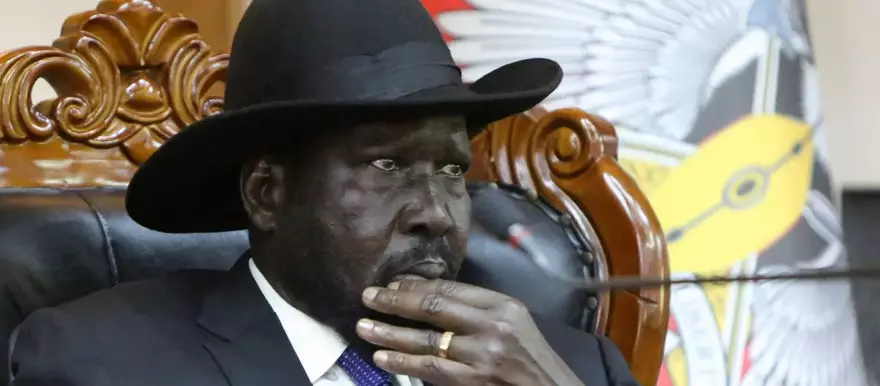South Sudan’s President Salva Kiir Mayardit has been urged to withhold the appointment of the ministers of defense and Interior until the two parties reach a consensus on the matter.
Abraham Kuol Nyuon, Professor of Political Science at the University of Juba appealed to the president to delay the appointment until the two principals break the stalemate over the defense ministry.
“This would be very good if the President would hold on the appointment of those positions until consensus is reached,” Kuol told Radio Tamazuj in an interview on Thursday.
On March 3, President Kiir sacked the minister of defense and veterans affairs, Angelina Teny a member of the Sudan People’s Liberation Movement in opposition led by Machar.
Kiir also dismissed Mahmoud Solomon, the national Interior minister who subscribes to his party SPLM-IG.
The President in another decree swapped control of the two ministries, giving the SPLM-IO the interior ministry while at the same time retaining the defense ministry for SPLM.
Professor Kuol said the roadmap has begun on what he called the “wrong-footing” following the recent events.
“I can say the roadmap has begun on the wrong foot because if there is no consensus at the very beginning then how do you expect consensus to continue in the next two years,” he said.
He urged the two principals to dialogue to find an amicable solution to address the matter.
“The only better option is for the top leaders, the principals to continue in conversation, it doesn’t matter how long it takes but they should continue to consult one another,” he said.
On his part, Edmund Yakani, Executive Director of the Community Empowerment for Progress Organization, said the stalemate over the defense ministry will undermine the implementation of security arrangements.
“The swapping of the ministries between IO and SPLM may undermine the implementation of security arrangement because the security arrangement is going to face challenges,” said Yakani. “There will be a lack of trust and confidence among the parties in driving the transitional security arrangement.”




